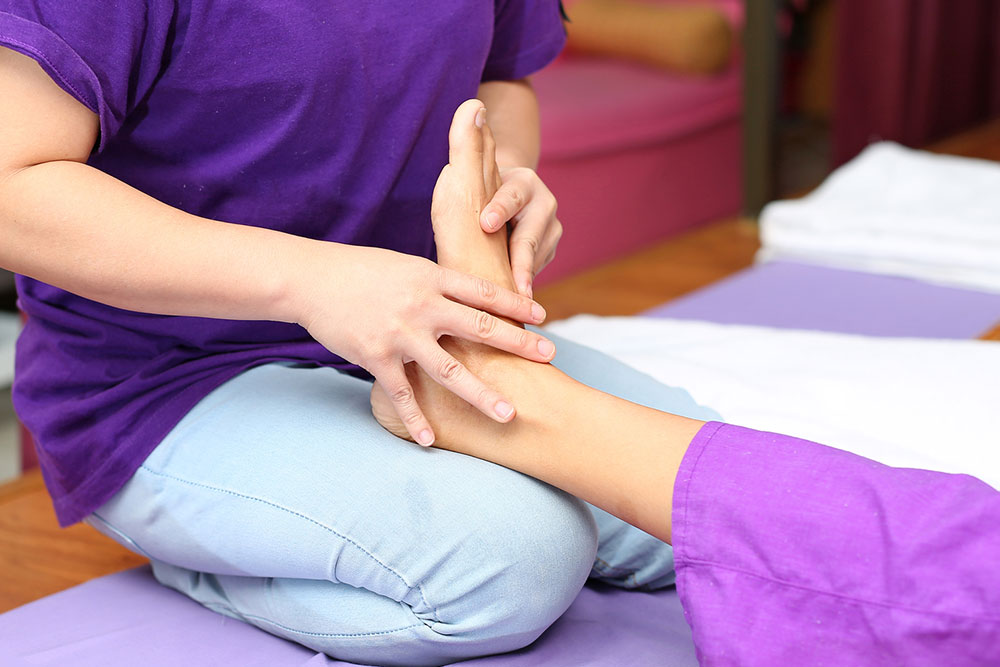Diabetic Foot Pain – Causes, Treatment, and Prevention
Diabetes can take a toll on every organ of your body if not controlled. Diabetic foot pain is one of the complications of severe, uncontrolled diabetes. First, diabetes restricts the blood flow to your feet, which then deprives them of nutrients and oxygen. The second complication is numbness of feet due to peripheral neuropathy caused by diabetes. Diabetic foot pain or sores, when left untreated, may even lead to amputation of the limb.

Diabetic foot pain treatments are based on the severity of the condition and the causes. It is important to discuss diabetic foot pain and sores with your doctor in order to ensure it does not lead to serious complications. Most diabetics develop foot pain and ulcers, but good foot care measures can help prevent serious complications.
What causes diabetic foot pain?
Diabetic foot sores commonly occur under big toes and the balls of your feet. They are caused due to the breaking of skin tissue and exposure of layers underneath. Severe sores may even affect the bones of your feet. Infected foot sores may even lead to amputation of your feet.
First signs of foot sores are drainage from your feet, unusual swelling, redness or irritation, and bad odor from one or both feet. Diabetic foot pain and ulcers are mainly caused due to a lack of healthy blood flow to the feet. This blocked blood flow results in the formation of a black tissue that surrounds the ulcer. Diabetic foot pain is usually caused due to the following.
- Poor blood flow – Poor blood flow is a vascular disorder that makes it difficult for wounds or ulcers to heal.
- High blood sugar – Hyperglycemia or high sugar levels hamper the healing of an infected foot ulcer. People with type 2 diabetes find it extremely difficult to manage infected ulcers.
- Nerve damage – This is a serious condition that may lead to permanent damage and total loss of sensation in your feet. Nerve damage results in a tingly sensation in the beginning, if left untreated it reduces sensitivity to foot pain and results in painless wounds.
- Wounded or irritated feet – Diabetic patients are prone to dry or damaged skin. Their feet crack up, causing corns, bleeding, and calluses.
In some rare cases, foot ulcers may not show any symptoms.
Diabetic foot pain treatments and prevention
Diabetic foot pain treatments focus on timely identification of symptoms and prompt curative measures. Even before diabetics develop foot pain and other complications, it is better to stick to certain preventive measures. Proper foot care on a daily basis can go a long way in preventing diabetic foot pain and sores. Here a few simple tips for diabetic foot pain treatments and prevention.
- Control your diabetes. Maintain a healthy and active lifestyle so that your blood glucose levels are maintained near normal. Consult your physician to chalk out a diet plan and stick to it.
- Inspect your feet regularly. Watch out for any abnormalities in your feet, like unusual growth or bad odor or discharge or swelling or red spots or boils.
- Maintain good hygiene. Clean your feet daily with warm water. After washing feet make sure you dry them and apply talcum powder to maintain the dryness.
- Moisturize your feet. Dry or irritated feet of diabetics may lead to wounds or cuts that may not heal. It is important to keep your feet moisturized always. Do not apply moisturizer in between toes, as it may cause infection.
- Protect your feet by wearing socks and shoes while stepping out of your home. Choose footwear that fits well. Use socks that do not irritate your skin.
- Ensure good blood circulation to feet. Make sure you do not sit or stand or cross your legs for extended hours as it may hamper blood circulation.
- Maintain doctor’s appointments. Make sure you get your feet checked by the doctor regularly.
Diabetic foot pain treatments aim at taking pressure off the feet and treating infections on feet. Special diabetic shoes are recommended for those with diabetic foot pain to take the pressure off the feet. Braces, foot casts, compression wraps, and shoe inserts for preventing corns and calluses are recommended by physicians. Debridement is performed by the doctor to remove the dead skin, foreign objects, or infections that may have caused the footsore. Other treatment measures for diabetic foot pain and ulcers are as follows:
- Enzyme treatments
- Dressings that curtail bacterial growth
- Foot baths
- Maintaining dryness of feet
- Disinfecting skin around the sore
- Medications to prevent progression of ulcer
Surgical intervention may be needed in severely damaged conditions, which may involve the removal of deformities or shaving down the bone.
As with any health disorder, staying active is extremely important to combat the complications of diabetes. Taking adequate preventive measures and timely diabetic foot pain treatments help in keeping serious complications at bay.